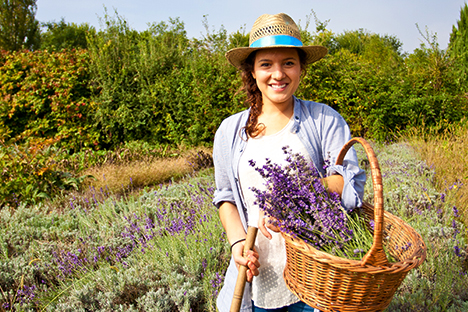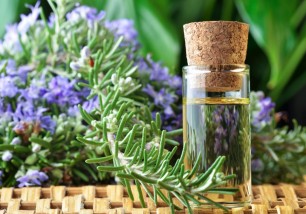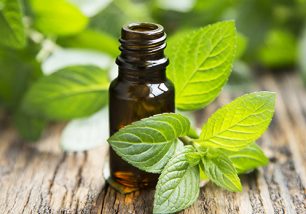OLEOLITES: THE POWER OF HERBS IN OIL
aromatic oilherb extractionmaceration in oilolive oilvegetable fat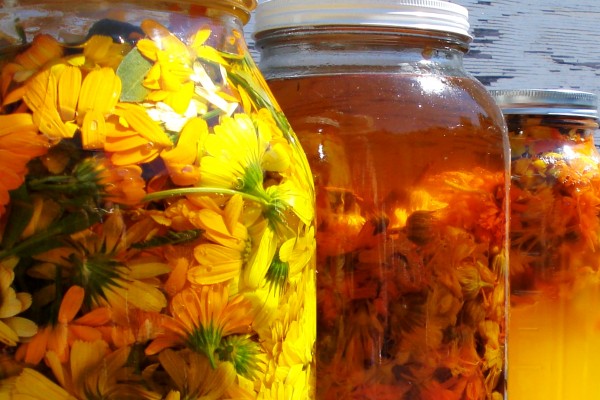
Surely known in very ancient times, macerated herbal oils, also called medicinal oils or oil tinctures, are extracts of medicinal and aromatic plants obtained by the solvent action of an appropriate vegetable fat oil.
For the extraction it is recommended to use an oil of excellent quality, which does not change easily, to ensure a good shelf life of the macerated (or steeped) herbal oil.
One of the best oils for this purpose is extra virgin olive oil which, besides having good stability, is known for its beneficial action on our body.
However it is also possible to use sunflower oil, corn, wheat germ, almonds, sesame, hazelnut, etc..
Macerated herbal oils are used in different areas: in cosmetics as a fat base for the preparation of creams; oily extracts contained in particular aromatic plants, the so called aromatic oils, are widely used in cooking to season dishes; another use is the curative one mainly for external application, applied locally or during a massage.
The herbs used can be either fresh or dried, but generally it is always advisable to partially dry plants and flowers that contain a lot of water (Calendula, Rosehip, Arnica, etc..) in order to avoid problems of poor preservation and unhomogeneity of the extract obtained because of the excess of water.
An exception is made for Hypericum flowers (Hypericum perforatum L.) as the active principles contained in the flower are inside granules present on the surface of petals.
Their drying would cause the degradation of these molecules and therefore the loss of the action of the plant.
METHODS OF PREPARATION:
In order to obtain a good macerated herbal oil, it is enough to follow a few simple rules:
The herbs or flowers used must be previously washed and cut (even coarsely) and immersed in oil.
The ratio between the plant and the oil is variable according to the herbs used and the final use, but usually the ratio 1:2, 1:5 or 1:10 is used and means that for 1 gram of dry plant will be obtained respectively 2, 5 or 10 grams of macerated herbal oil.
In home production it is not necessary to respect the exact ratio, the important thing is that the plant is completely submerged in the oil used.
Before closing the container, it is recommended to add coarse sea salt on the surface of the oil in order to increase the shelf life of the extract and the extraction power of the oil.
The plants in oil are then left to macerate for a time varying from 6-30 days depending on the plant used.
In the past and in particular for the production for personal use, it is suggested to expose the maceration container to the sun: this means exposing the oil to an increase of temperature in order to help the extraction of the active principles contained in the plant and the fluidization of the oil.
However this system is not always beneficial because, many molecules contained in plants, if exposed to heat, are altered by losing their functionality.
Therefore for some plants, such as Hypericum, Calendula, Rosemary and Helichrysum, maceration is done in the sun; in case of more delicate plants it is better to place them in a shaded place.
In case of more delicate plants, it is better to place them in a shaded place. For the latter, maceration will take longer times (usually at least 3 weeks).
Once maceration is over, the macerated herbal oil is pressed, filtered and bottled in dark containers with an hermetic seal and kept in a cool place away from heat sources.
Generally speaking, oil extracts have a shelf life from 6 to 12 months.
It is always recommended to prepare a sufficient quantity for one’s own needs, avoiding long periods of storage.
Elisa Carnevale
More informations on:
Other articles that may interest you:
Enfleurage: ancient technique to extract essences from flower petals
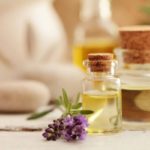 ESSENTIAL OILS: WELLNESS IN HOME
ESSENTIAL OILS: WELLNESS IN HOME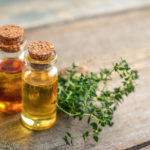 THYME ESSENTIAL OIL: USES AND PROPERTIES
THYME ESSENTIAL OIL: USES AND PROPERTIES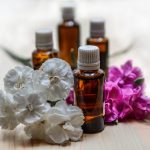 AROMATHERAPY: HOW TO CHOOSE AN ESSENTIAL OIL
AROMATHERAPY: HOW TO CHOOSE AN ESSENTIAL OIL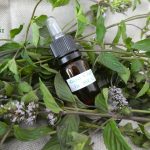 HOW TO DISTILL MINT
HOW TO DISTILL MINT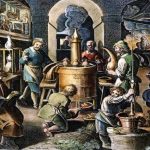 AROMATHERAPY: HISTORY
AROMATHERAPY: HISTORY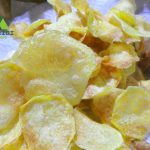 POTATO CHIPS WITH ROSEMARY AROMATIC WATER
POTATO CHIPS WITH ROSEMARY AROMATIC WATER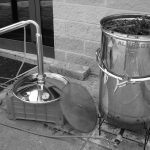 ROSEMARY ESSENTIAL OIL: CULTIVATION AND PRODUCTION
ROSEMARY ESSENTIAL OIL: CULTIVATION AND PRODUCTION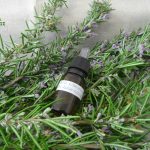 HOW TO DISTILL ROSEMARY
HOW TO DISTILL ROSEMARY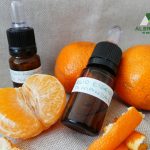 HOW TO DISTILL TANGERINE PEEL
HOW TO DISTILL TANGERINE PEEL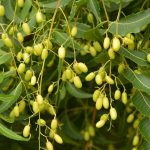 NEEM OIL, FROM THE PLANT OF GOOD HEALTH
NEEM OIL, FROM THE PLANT OF GOOD HEALTH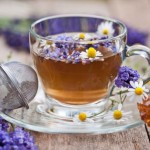 HERBAL TEAS, INFUSIONS AND DECOCTIONS: THE DIFFERENCES AND METHODS OF PREPARATION
HERBAL TEAS, INFUSIONS AND DECOCTIONS: THE DIFFERENCES AND METHODS OF PREPARATION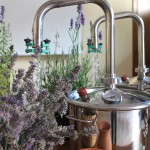 HOW TO MAKE HOMEMADE ESSENTIAL OILS
HOW TO MAKE HOMEMADE ESSENTIAL OILS HEALTHY HAIR WITH AROMATIC PLANTS
HEALTHY HAIR WITH AROMATIC PLANTS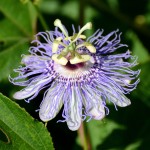 THE GOOD NIGHT PLANTS
THE GOOD NIGHT PLANTS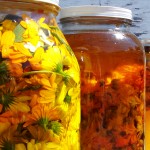 OLEOLITES: THE POWER OF HERBS IN OIL
OLEOLITES: THE POWER OF HERBS IN OIL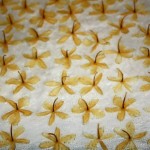 ENFLEURAGE: ANCIENT TECHNIQUE TO EXTRACT ESSENCES FROM FLOWER PETALS
ENFLEURAGE: ANCIENT TECHNIQUE TO EXTRACT ESSENCES FROM FLOWER PETALS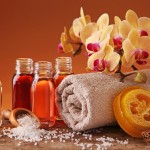 ESSENTIAL OILS AND ECOLOGICAL DETERGENTS FOR HOUSE CLEANING
ESSENTIAL OILS AND ECOLOGICAL DETERGENTS FOR HOUSE CLEANING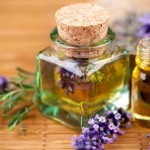 OIL FOR STRENGTHENING HAIR
OIL FOR STRENGTHENING HAIR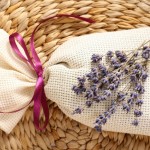 SCENTED BAGS WITH DRIED HERBS AND ESSENTIAL OILS
SCENTED BAGS WITH DRIED HERBS AND ESSENTIAL OILS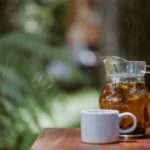 PURIFYING AND CLEANSING HERBAL TEAS DO-IT-YOURSELF
PURIFYING AND CLEANSING HERBAL TEAS DO-IT-YOURSELF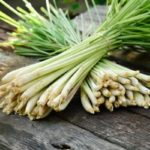 LEMONGRASS: ESSENTIAL OIL TO FIGHT TUMORS
LEMONGRASS: ESSENTIAL OIL TO FIGHT TUMORS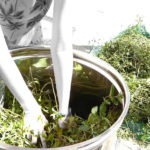 MINT ESSENTIAL OIL: CULTIVATION AND PRODUCTION
MINT ESSENTIAL OIL: CULTIVATION AND PRODUCTION CITRUS FRUITS AND ALZHEIMER’S DISEASE: NEW DISCOVERIES
CITRUS FRUITS AND ALZHEIMER’S DISEASE: NEW DISCOVERIES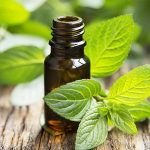 MINT ESSENTIAL OIL: USES AND PROPERTIES
MINT ESSENTIAL OIL: USES AND PROPERTIES